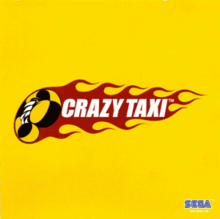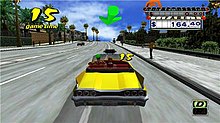
Quake III Arena is a 1999 multiplayer-focused first-person shooter developed by id Software. The third installment of the Quake series, Arena differs from previous games by excluding a story-based single-player mode and focusing primarily on multiplayer gameplay. The single-player mode is played against computer-controlled bots. It features music composed by Sonic Mayhem and Front Line Assembly founder Bill Leeb.

The Dreamcast is a home video game console released by Sega on November 27, 1998, in Japan; September 9, 1999, in North America; and October 14, 1999, in Europe. It was the first sixth-generation video game console, preceding Sony's PlayStation 2, Nintendo's GameCube, and Microsoft's Xbox. The Dreamcast was discontinued in 2001, ending Sega's 18 years in the console market.
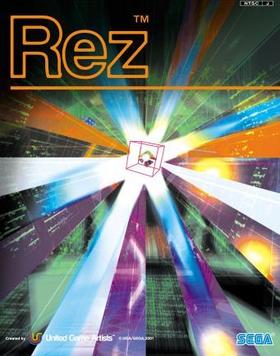
Rez is a musical rail shooter game developed by United Game Artists and published by Sega for the Dreamcast and PlayStation 2. It was released in Japan in 2001, followed by releases to the United States and Europe in 2002. The game was ported to Xbox 360 as Rez HD by Q Entertainment and HexaDrive in 2008. A virtual reality-compatible expanded version dubbed Rez Infinite was co-developed and released through 2016 to 2023 by Enhance Games, Resonair and Monstars for PlayStation 4, Windows, Android, Oculus Quest and PlayStation 5.

The Simpsons: Road Rage is a 2001 racing video game based on the animated television series The Simpsons, and is part of a series of games based on the show. It was released for PlayStation 2, Xbox and GameCube. A Game Boy Advance version was released in 2003.
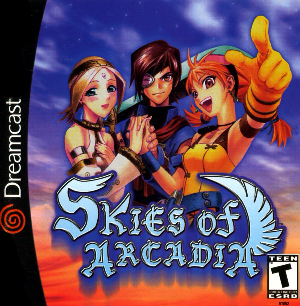
Skies of Arcadia is a 2000 Dreamcast role-playing video game developed by Overworks and published by Sega. Players control Vyse, a young air pirate, and his friends as they attempt to stop the Valuan Empire from reviving ancient weapons with the potential to destroy the world.
In the history of video games, the sixth generation era is the era of computer and video games, video game consoles, and handheld gaming devices available at the turn of the 21st century, starting on November 27, 1998. Platforms in the sixth generation include consoles from four companies: the Sega Dreamcast (DC), Sony PlayStation 2 (PS2), Nintendo GameCube (GC), and Microsoft Xbox. This era began on November 27, 1998, with the Japanese release of the Dreamcast, which was joined by the PlayStation 2 on March 4, 2000, the GameCube on September 14, 2001 and the Xbox on November 15, 2001, respectively. On March 31, 2001, the Dreamcast was among the first to be discontinued. Xbox in 2006, GameCube in 2007 and PlayStation 2 was the last, in January 2013. Meanwhile, the seventh generation of consoles started on November 22, 2005, with the launch of the Xbox 360.
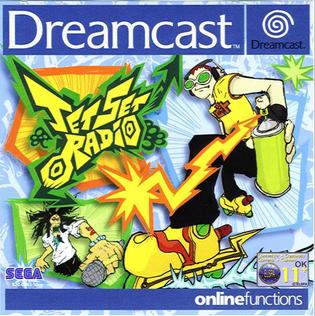
Jet Set Radio is a 2000 action game developed by Smilebit and published by Sega for the Dreamcast. The player controls a member of a youth gang, the GGs, as they use inline skates to traverse Tokyo, spraying graffiti, challenging rival gangs, and evading authorities.
2001 saw many sequels and prequels in video games, such as Madden NFL 2002, NBA Live 2002, NBA 2K2, WWF Smackdown! Just Bring It, Capcom vs. SNK 2,Dead or Alive 3, Final Fantasy X, Gran Turismo 3: A-Spec, Grand Theft Auto III, Metal Gear Solid 2: Sons of Liberty, Myst III: Exile, Crazy Taxi 2, SSX Tricky, Super Smash Bros. Melee, Sonic Adventure 2, Tony Hawk's Pro Skater 3, and Virtua Fighter 4. New intellectual properties include Ace Attorney, Advance Wars,Animal Crossing, Burnout, Gothic, Black & White, Devil May Cry, Fatal Frame, Ghost Recon,Halo, Jak and Daxter, Max Payne, Oni, Onimusha: Warlords, Operation Flashpoint, Pikmin, Pro Evolution Soccer, Red Faction, Serious Sam, and Tropico.

18 Wheeler: American Pro Trucker, known in Japan as 18 Wheeler, is an arcade game developed by Sega AM2 and distributed by Sega. The game was released in arcades in 2000 and ported to the Dreamcast in 2001. It was released for the PlayStation 2 in 2001 and GameCube in 2002 by Acclaim Entertainment. Sega followed up on the success of 18 Wheeler with a sequel, The King of Route 66, which was released in the arcades in 2002 and ported to the PlayStation 2. This was one of the final arcade games to be ported to the Dreamcast after its discontinuation, before Sega became a third-party developer.

Crazy Taxi is a series of racing games developed by Hitmaker and published by Sega. It was first available as an arcade video game in 1999, then released for the Dreamcast console in 2000. It is the third best-selling Dreamcast game in the United States, selling over a million copies. The game was later ported to the PlayStation 2, GameCube, and IBM PC compatibles with sequels also appearing on the Xbox, Game Boy Advance, and PlayStation Portable systems.

Capcom vs. SNK 2: Mark of the Millennium 2001 is the sequel to the fighting game Capcom vs. SNK. It was originally released on NAOMI hardware in arcades, with Sega handling the American arcade release. As in the original, players select a team of fighters from various Capcom and SNK games then fight other teams, winning each battle by defeating all the opponents from the other team.
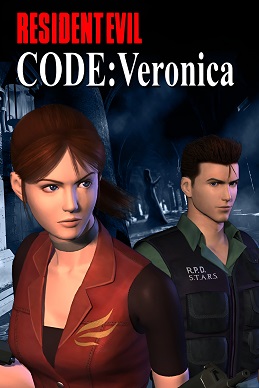
Resident Evil – Code: Veronica is a survival horror video game developed and published by Capcom and originally released for the Dreamcast in 2000. It is the fourth main installment in the Resident Evil series and the first to debut on a separate platform from the PlayStation. The story takes place three months after the events of Resident Evil 2 (1998) and the concurrent destruction of Raccoon City as seen in Resident Evil 3: Nemesis (1999). It follows Claire Redfield and her brother Chris Redfield in their efforts to survive a viral outbreak at a remote prison island in the Southern Ocean and a research facility in Antarctica. The game retains the traditional survival horror controls and gameplay of previous installments; however, unlike the pre-rendered backgrounds of previous games, Code: Veronica uses real-time 3D environments and dynamic camera movement.

F355 Challenge is a racing simulation arcade video game based on the race car and Ferrari event. It was developed by the AM2 division of Sega for the Sega Naomi Multiboard arcade system board under the direction of Yu Suzuki, and was later ported to the Dreamcast and PlayStation 2 home video game consoles under the names F355 Challenge: Passione Rossa and Ferrari F355 Challenge respectively for both American and European releases. The only model of car featured in the game is the Ferrari F355 Challenge model. The game was considered the most accurate simulation of the F355 possible up until that time.

NFL 2K2 is a 2001 video game for Dreamcast by Sega and developed by Visual Concepts. It is the last game for the Sega Dreamcast in the series after being discontinued before Sega shifted to a third party publisher. Because of this shift, it was released later for PlayStation 2 and Xbox. It is also the first Xbox game published by Sega, and the last game in the NFL 2K series to feature Randy Moss as a cover athlete.

Dead or Alive 2 is a fighting game developed by Team Ninja and published by Tecmo. It debuted in Arcades in 1999 and was later ported for the Dreamcast and the PlayStation 2 in 2000. It is the second main entry in the Dead or Alive fighting series. Several enhanced editions of the game were released, including the updates Dead or Alive 2 Millennium and Dead or Alive 2 Hardcore.

Hydro Thunder is an arcade inshore powerboat racing video game originally released by Midway Games in February 1999 and later released for the Sega Dreamcast as a launch title later that year. It was also released for the PlayStation and Nintendo 64 in early 2000. This game is part of Midway's Thunder series of racing games, which includes Offroad Thunder, 4 Wheel Thunder, and Arctic Thunder. Hydro Thunder Hurricane, a sequel to Hydro Thunder, was later released for the Xbox 360 on July 27, 2010 on Xbox Live Arcade.

Garou: Mark of the Wolves is a 1999 fighting game produced by SNK, originally for the Neo Geo system and then as Fatal Fury: Mark of the Wolves for the Dreamcast. It is the eighth installment of the Fatal Fury series.
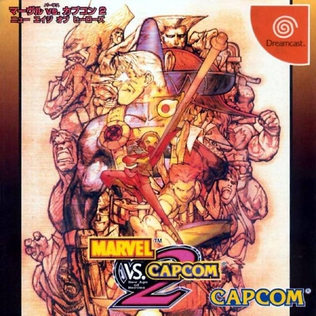
Marvel vs. Capcom 2: New Age of Heroes is a crossover fighting game developed and published by Capcom. It is the fourth installment in the Marvel vs. Capcom series, which features characters from both Capcom's video game franchises and comic book series published by Marvel Comics. Originally released in Japanese arcades in 2000, the game received ports to the Dreamcast, PlayStation 2, PlayStation 3, Xbox, Xbox 360, and iOS devices over the span of twelve years.

The PlayStation 2 (PS2) is a home video game console developed and marketed by Sony Computer Entertainment. It was first released in Japan on 4 March 2000, in North America on 26 October 2000, in Europe on 24 November 2000, and in Australia on 30 November 2000. It is the successor to the PlayStation (console), as well as the second installment in the PlayStation brand of consoles. As a sixth-generation console, it competed with Nintendo's GameCube, Sega's Dreamcast, and Microsoft's Xbox. It is the best-selling video game console of all time, having sold over 155 million units worldwide, nearly triple the combined sales of the Dreamcast, GameCube, and Xbox.

NBA 2K2 is a 2001 sports video game developed by Visual Concepts and published by Sega for Dreamcast, PlayStation 2, Xbox and GameCube. NBA 2K2 featured more street courts such as Mosswood, Fonde Rec Center, Venice Beach, etc. The cover athlete is Allen Iverson of the Philadelphia 76ers.
